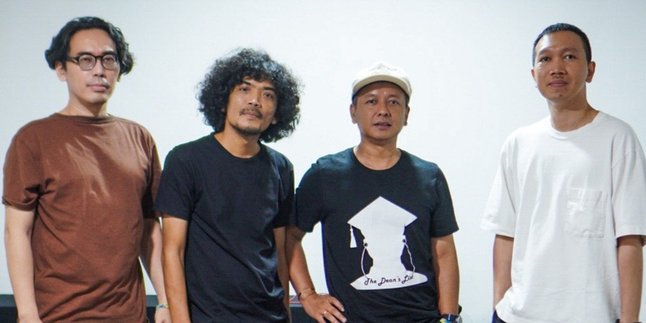Kapanlagi.com - Workshops have increasingly become a favorite in the world of learning across various sectors. This concept is not just a forum for sharing knowledge, but also an interactive platform where participants can engage directly in the learning process.
With a practical and collaborative approach, workshops provide opportunities for individuals to develop skills, share ideas, and receive constructive feedback from instructors and fellow participants. However, do you know what a workshop actually means?
In this article, we will thoroughly discuss the definition, benefits, various types, and other important aspects surrounding workshops. From creative workshops to professional training, each type of workshop has different goals and methods, but all aim to enhance the knowledge and skills of participants, as reported by Kapanlagi.com from various sources on Friday (29/11).
1. Definition of Workshop
A workshop, or what we commonly refer to as a "lokakarya", is a scientific meeting that is not just about theory, but is also full of action and interaction! The term originates from English meaning "workshop", but in the world of learning, its meaning is much deeper. Imagine a group of people gathering, sharing knowledge, and honing new skills in a dynamic and collaborative atmosphere.
Unlike seminars that tend to be one-way, workshops prioritize active participation, where participants are directly involved in practice and discussion. With a short duration and a limited number of participants, everyone has the opportunity to voice their opinions and learn from one another, guided by expert facilitators.
Now, with the advent of online formats, workshops are increasingly accessible, reaching more people without location constraints, while still maintaining the interactive spirit that characterizes them.
2. History and Development of Workshops
Workshops as an interactive learning method have a long history, starting from apprenticeship practices in ancient times. Although the term "workshop" was only recognized in the 20th century, the need for structured training during the Industrial Revolution drove the development of this method.
Influenced by progressive education figures like John Dewey, workshops became an interactive and participant-centered format. After World War II, workshops gained popularity across various industries and in academic contexts. In the 1960s and 1970s, interest in workshops for personal development increased.
With advancements in digital technology, workshops are now available in flexible and global online formats. Today, workshops have become an important part of various fields, adapting to the needs of participants while still providing practical and enjoyable learning experiences.
3. Goals and Benefits of the Workshop
A workshop is not just an ordinary learning event; it is a dynamic platform that combines various goals and benefits to foster the development of skills and knowledge. In a collaborative and spirited atmosphere, participants can hone specific abilities through hands-on practice, gain new insights from experts, and formulate innovative solutions to the challenges they face.
Moreover, workshops also serve as a valuable opportunity to expand professional networks, where fresh ideas and diverse perspectives are exchanged. With an active learning approach and immediate feedback, participants not only acquire knowledge but also build confidence and crucial soft skills.
In a relatively short time, workshops offer a profound and memorable learning experience, making them an invaluable tool in the journey of personal and professional development.
4. Types of Workshops
Workshops come in a variety of amazing forms, each designed to meet different needs and goals. From skill training workshops that hone specific abilities such as writing and graphic design, to professional development workshops that enhance workplace competencies, this limitless selection allows participants to explore their potential. A
There are also creativity workshops that stimulate innovation, as well as problem-solving workshops that help tackle challenges within organizations. With various formats, such as face-to-face, online, or hybrid, and durations ranging from short sessions to multi-day events, everyone can find a workshop that fits their learning style.
Whether in the fields of technology, business, arts, health, or personal development, each workshop offers a unique experience designed to foster growth and effective learning.
With this diverse array of choices, participants can select the workshops that are most relevant to their needs, making the learning experience even richer and more beneficial.
5. Key Characteristics of Workshops
A workshop is an engaging and interactive learning experience, different from seminars or lectures that tend to be one-way. In a relaxed and informal atmosphere, participants are encouraged to actively engage, discuss, and collaborate in small groups, usually between 10 to 30 people.
Guided by expert facilitators, workshops emphasize hands-on practice, allowing participants to apply the skills learned through various hands-on activities, simulations, or mini-projects. With clear learning objectives and a flexible structure, each session is designed to produce concrete outcomes, whether it's a product, action plan, or new skills.
Additionally, workshops also encourage reflection and feedback, creating an environment that supports the exchange of ideas and cross-disciplinary collaboration. With all these characteristics, workshops become a top choice for those who want to effectively and enjoyably develop knowledge and skills.
6. The Difference Between Workshops and Other Activities
A workshop is a form of learning activity that has its own uniqueness, making it different from seminars, traditional classes, conferences, training, webinars, brainstorming sessions, and focus groups. With high interactivity, workshops provide space for participants to actively engage in the practice and application of skills, unlike seminars which tend to be more one-way presentations.
Typically held in small groups, workshops allow for in-depth exploration of a single topic, while traditional classes tend to be more rigid and focused on broader material. In a more intimate setting, workshops aim for the development of concrete skills, whereas conferences are more oriented towards sharing research.
With longer durations and flexible structures, workshops not only encourage active participation but often also produce tangible outputs, making them an ideal choice for those who want to learn in a practical and innovative way.
7. Structure and Components of the Workshop
An effective workshop is carefully designed to maximize learning and participation, starting with a warm opening session where the facilitator welcomes participants and explains the objectives and agenda of the activities. After that, participants will be engaged in an interesting presentation of foundational material, complete with examples and a Q&A session.
The core of the workshop consists of practical activities involving exercises, simulations, and group discussions, followed by reflections to delve into experiences and feedback. From there, participants will explore the material further, integrating their learning and planning real-world applications of the skills they have learned.
The closing includes a summary, evaluation, and follow-up information, while supporting components such as additional materials and networking sessions enrich the experience.
Flexibility in the structure allows for adjustments according to the dynamics of the participants, making each workshop a comprehensive learning experience ready to be applied in the real world.
8. Preparation for Organizing a Workshop
Successfully organizing a workshop is not a trivial matter; it requires careful and well-planned preparation. Start by setting clear goals and outcomes you want to achieve, and then understand the characteristics of the participants so that the content delivered is targeted.
Choose experienced facilitators who are suitable for the theme, and develop engaging and relevant materials. Don't forget to pay attention to logistics, such as location and necessary equipment, to ensure everything runs smoothly.
Plan a balanced agenda between presentations and discussions, and prepare an evaluation mechanism to measure the effectiveness of the workshop. With all these steps, you not only create a deep learning experience but also leave an unforgettable impression on every participant.
9. Facilitation Techniques in Workshops
The success of a workshop greatly depends on effective facilitation skills, and there are various techniques that can be used to create an engaging and participatory learning experience. From using relevant ice breakers and provocative questions at the beginning, to group discussion management techniques that ensure all voices are heard, every step plays an important role.
Facilitators can enliven the atmosphere with storytelling, interactive polling, and role-playing, while maintaining group spirit through energizers and careful time management. Equally important, constructive feedback and deep reflection can enrich the learning process, while integrating technology and wisely handling difficult situations will enhance the quality of interactions.
By mastering these techniques, facilitators can create workshops that are not only dynamic but also have a profound positive impact on all participants.
10. Learning Methods in Workshops
Dynamic and engaging workshops utilize a variety of learning methods to ensure that each participant not only absorbs but is also able to apply the new knowledge and skills they acquire.
From experiential learning that invites participants to engage directly in simulations and reflections, to collaboration that encourages interaction and discussion in small groups, each method is designed to create a profound experience.
Participants are also encouraged to think critically through problem-based learning, where they tackle real challenges, as well as independent exploration in inquiry sessions that stimulate curiosity. Not to mention, visual and kinesthetic elements, touching storytelling, and the use of modern technology also enrich the learning process.
With a varied approach, this workshop is able to accommodate different learning styles, creating an interactive and meaningful atmosphere, while providing space for participants to collaborate, innovate, and reflect on their experiences.
(kpl/rao)
Disclaimer: This translation from Bahasa Indonesia to English has been generated by Artificial Intelligence.












